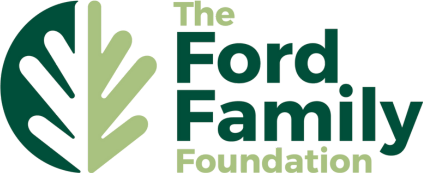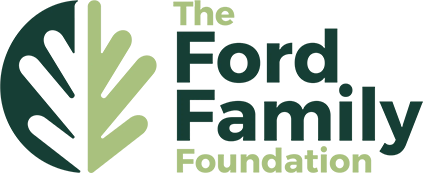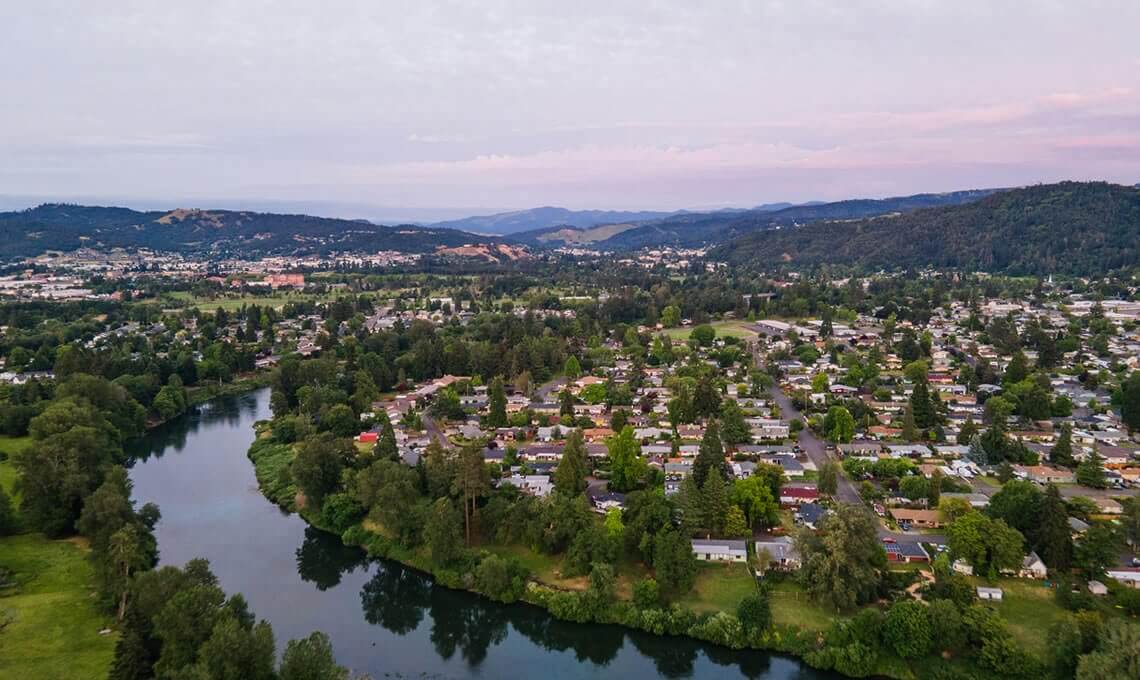Dear friends and colleagues,
As The Ford Family Foundation navigated the tumultuous events of the last two years, our staff and Board of Directors took a hard look at how we can be the most effective stewards of the generous gifts from Kenneth Ford and Hallie Ford. The result was the development of a new strategic plan to guide the next decade of the Foundation’s work. As we emerge from the pandemic with fresh hope and renewed energy, we are pleased to share what we discovered and where we are headed.
First and foremost, the Foundation’s commitment to the rural communities of Oregon and Siskiyou County, Calif., remains unwavering. After all, this Foundation is one of only a few in the country dedicated to rural places and people. We take that responsibility seriously.
Our investments in rural community building, grantmaking and scholarships will continue in full. Indeed, they will grow.
What’s new?
We will strengthen our focus on ensuring that children have the family, educational and community supports they need to succeed in life.
Vibrant, robust rural communities and economies depend on their ability to attract and sustain working families. For those families and their children to thrive, they need community systems that support lifelong educational success and socioeconomic well-being. This is the intersection where you will increasingly see The Ford Family Foundation’s work in coming years.
How will we carry this out?
Family strategies will adopt a two-generation approach, strengthening family and caregiver supports, family financial education and stability, child abuse prevention and intervention, and behavioral and mental health programs and systems.
Education strategies will focus on two key transition points in a child’s educational career: First, the transition from early education to K-12 schools, especially the pathway from birth to third grade; second, the transition from high school to postsecondary education or a career. The Foundation will maintain current postsecondary scholarship programs for both traditional and nontraditional students. Across all age groups, our priority will be students who have fewer learning resources and poorer educational outcomes, notably students who are rural, low-income, first-generation, male and people of color.
Community strategies will focus on building rural organizational, community and economic development capacity. Community building is in the DNA of the Foundation, and we will continue to meet communities where they are and work with them on their priorities. We expect to work most deeply in places prioritizing improved outcomes for children and building support systems for local entrepreneurs. At the same time, we will increase the amount of funding for our open-door grantmaking, called Good Neighbor. This will allow us to respond to most rural needs with a funding opportunity.
Rural champion is a role that we intend to step into more vigorously. We will strengthen the Foundation’s capacity and that of partner communities and organizations to champion rural people, places and issues. This includes increasing investments in high quality data and research that convey the reality of what is happening in rural communities, especially the inequities associated with rural life, to inform policy, advocacy and public discourse.
We cannot overstate our gratitude to all our partners who carry out work on the ground every day, from whom we always learn so much. We are inspired by your resilience over the last two years. We hope you see evidence of your hard work, your wisdom, your courage and your love for your community in the Foundation’s journey ahead.
We welcome questions, comments and suggestions about our work at any time. Reach out to a Foundation team member you may already know or call our offices at any time.
Anne Kubisch, President and CEO
On behalf of the Board of Directors and staff of The Ford Family Foundation


